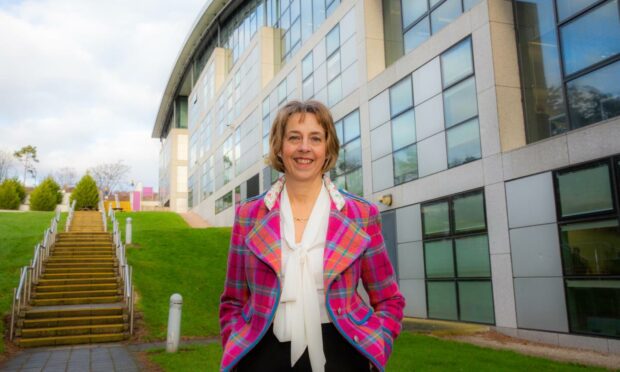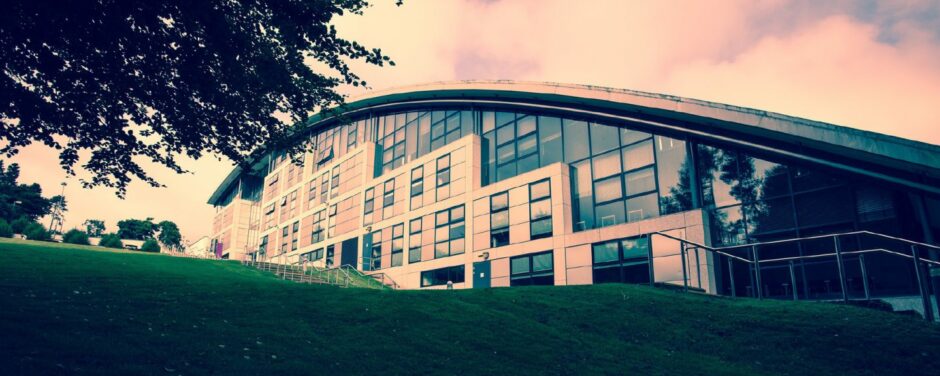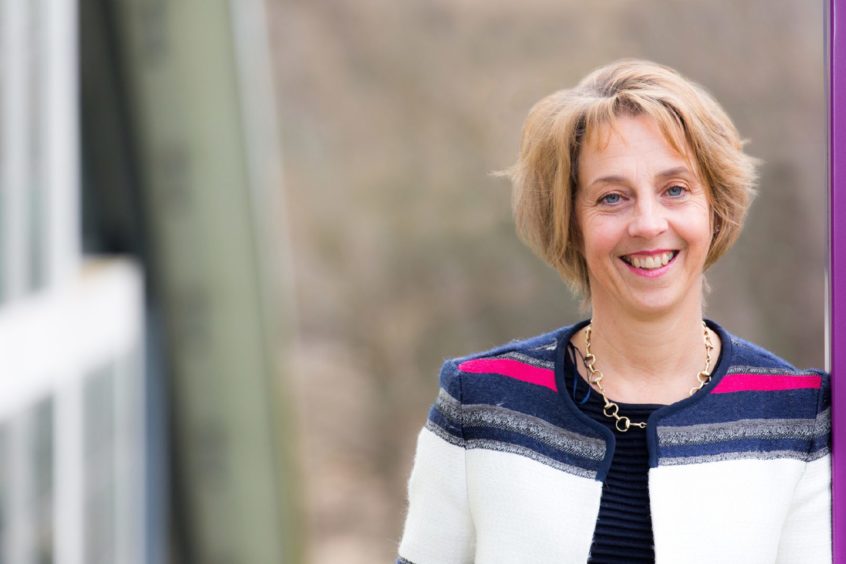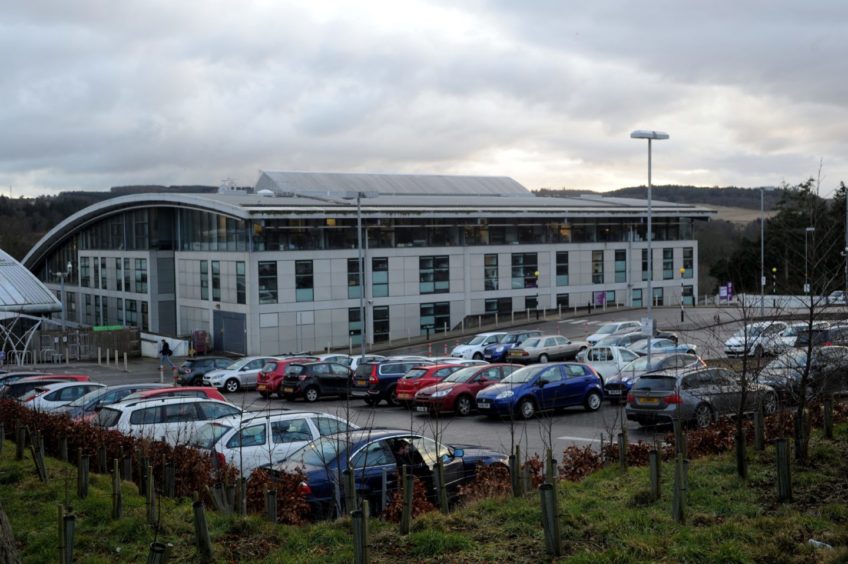The business environment is constantly changing so it is important to produce graduates who are work-ready, innovative, adaptive and prepared for future challenges.
At Aberdeen Business School we have a mantra of continuous improvement. Our staff engage with a variety of stakeholders to inform our approach, and we consistently innovate to provide an industry-led, top-quality business school experience for students.
I took up the position of head of Aberdeen Business School at Robert Gordon University (RGU) in 2016 and with a revised vision – to empower and inspire, create opportunity, and equip students with the ability to drive change to transform communities.
We have worked tirelessly to deliver on our corresponding mission – to develop and enthuse professional thinkers and innovative contributors through business-connected teaching, learning and impactful research.
Since 2016 the school has embarked on an ambitious quality improvement plan and in 2018 joined an exclusive group when it achieved Association to Advance Collegiate Schools of Business accreditation, meeting 15 rigorous education standards.
Further recognition
It followed up this success a year later by becoming the first business school in the world to achieve Business Graduates Association accreditation, recognising our approach to both responsible management education and addressing United Nations sustainable development goals through our syllabus.
We were also delighted to be shortlisted for business school of the year in the Times Higher Education Awards – often referred to as the “Oscars” of the education world.
These awards recognise outstanding performance by universities throughout the UK, with the business school of the year accolade specifically honouring excellent teaching, research, student experience, innovation and development.
That shortlisting in 2019 also recognised our work to support students and the local economy following a downturn in oil prices.
We have worked tirelessly to deliver on our corresponding mission – to develop and enthuse professional thinkers and innovative contributors through business-connected teaching, learning and impactful research.”
We were even more delighted to go one better in the same awards in 2020, winning business school of the year – in recognition for our focus and continual development of work-based and work-related learning.
The school has a very successful undergraduate placement programme, with more than 70% of students typically taking 12-month paid roles as an integral part of their degrees, and we have now rolled out this opportunity within our postgraduate courses.
Postgraduate students can incorporate a 12-month placement into their programme and thus improve their employability. The scheme has been very well-received, significantly increasing our postgraduate numbers.
Further harnessing our expertise in work-related learning, the school has developed a predominantly online graduate apprenticeship in business management, funded by Skills Development Scotland.
This supports upskilling and reskilling for the changing business environment by providing accessible work-based learning opportunities.
Our course design has allowed students throughout Scotland to take up this learning opportunity, extending access to higher education to many who were unable to study a more traditional on-campus type of course.
Pioneering accountancy apprenticeship
In 2019 we successfully bid to run a pilot graduate apprenticeship in accountancy, and after a successful first cohort we were the only business school in Scotland to be awarded funded places.
This programme was developed in partnership with two professional accounting bodies, Icas and Acca. It gives students a unique chance to complete an honours degree and their chosen professional accounting qualification over five years, rather than the usual seven, while remaining in full-time employment.
The popularity of the course is evident by the fact there is already a waiting list for 2021, despite an increase in the number of funded places on offer.
To be named business school of the year was a huge achievement for everyone involved, as it rewards our innovative approach to top-quality education provision, but we are not resting on our laurels. I am often asked: “So what now?”
Despite the challenging environment we are now operating in, due to Covid, we are still seeking to improve our offering and emerge even stronger from the pandemic.
We were forced to adapt very quickly to changing circumstances but seamlessly transferred to a digital delivery format. We also adapted our work-based learning to offer shorter six-month paid placements and part-time unpaid internships – both of which have been well-received, by the business community and students alike, and are likely to continue.
Harnessing new ways of learning
While we are all desperate to get back onto campus, we plan to use and harness much of the learning that we have benefited from under this new style of operation.
We have also continued to build on our long-standing and strong partnerships with the wider business community to create a full portfolio of courses that address the future skills needs of the region and further afield, and give our students an outstanding experience.
For example, we have recently launched a new sustainability and energy transitions route through our AMBA (Association of MBAs)-accredited MBA and we are about to validate a similar energy transitions route through our MSc energy management programme.
We have also continued to build on our long-standing and strong partnerships with the wider business community.”
We are developing a new range of interdisciplinary courses – both at undergraduate level, where we are looking to combine management and accounting with data science and data analytics, and at postgraduate level, where we are going to offer different routes through our management programme to include cybersecurity and sustainable development, as well as IT and data science.
All of this new provision, designed to prepare the future workforce, has been industry-informed and we are excited what the future holds.
Economic growth and sustainability in the region have been a key focus, and the school has worked tirelessly with stakeholders to support and contribute to recovery in the aftermath of what has been a very difficult few years.
We are very aware of the role the school can play in the recovery of the economy post-Covid and currently working on ideas around this.
Meanwhile, the school has just been awarded the Small Business Charter in recognition of the work that we do to support small and medium-sized enterprises (SMEs) and we are looking forward to being able to deliver the UK Government-funded Help to Grow scheme over the next three years.
As the only business school north of the central belt entitled to run this leadership and management programme from September 2021, we are looking forward to supporting the SME sector as we all recover from the economic consequences of the pandemic.
‘Gratifying’
It is gratifying to look back over the past five years and reflect on the various achievements of the school. They are the result of a collective effort by enthusiastic and committed staff, not only within the school but across the whole university.
I suspect the achievement we covet the most is our performance in the National Student Survey 2020. We were ranked top in Scotland and top equal in the UK for overall student satisfaction, with a score of 95.85%.
It is extremely pleasing when students appreciate how their education at Aberdeen Business School has provided them with a platform from which to launch the next stage of their career journey.
Professor Elizabeth Gammie is head of Aberdeen Business School at Robert Gordon University
RGU graduate Rachel Sim took inspiration from lockdown entrepreneurs
North-east academic highlights ‘real crisis’ in Scottish entrepreneurship




